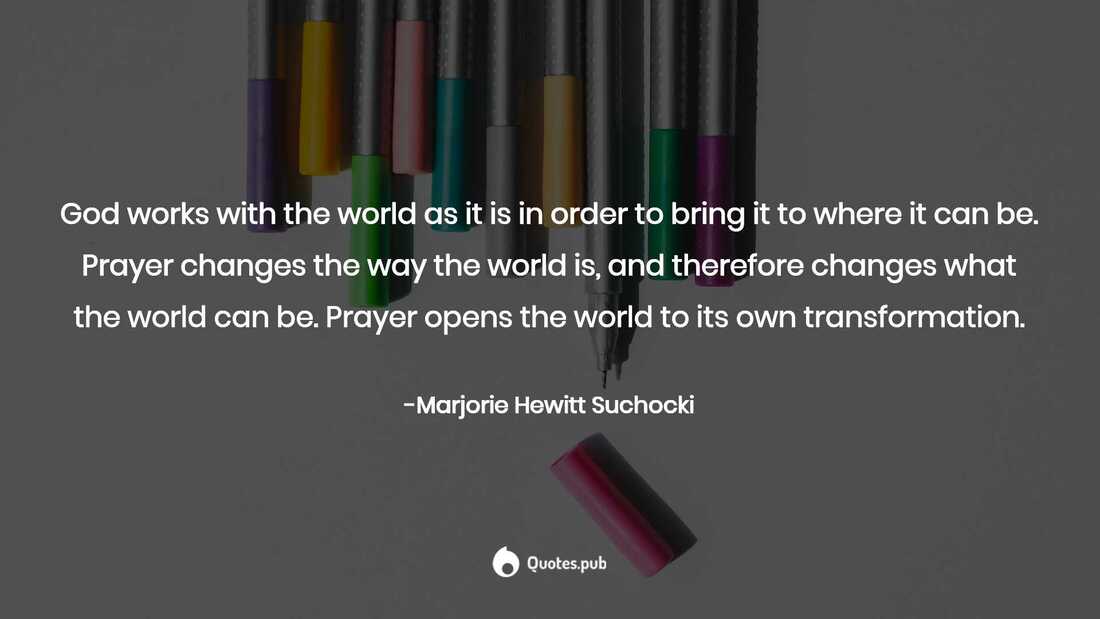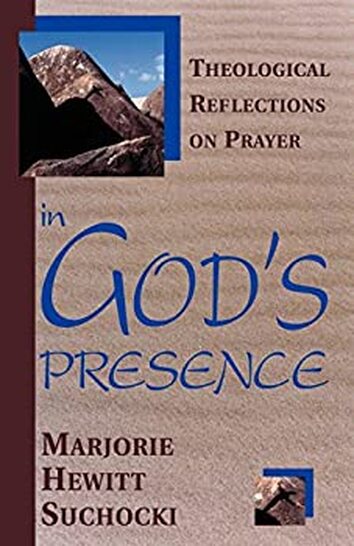- Home
- Process Worldview
- Community
- Art and Music
- Whitehead and Process Thinking
- Podcasts
- Spirituality
- Ecological Civilization
- Education
- Contact
- Social Justice
- Science
- Animals
- Sacred Poems
- Whitehead Videos
- Index of All Titles
- Practicing Process Thought
- Process Spirituality: A Spiritual Alphabet
- Recent Posts
Table of ContentsChapter One: The Question of Prayer
Chapter Two: Images of God Chapter Three: Conditions of Prayer Chapter Four: Intercessory Prayer Chapter Five: Prayers for Healing Chapter Six: Prayers of Personal Confession Chapter Seven: Prayers of Corporate Confession Chapter Eight: Liturgical Prayers Chapter Nine: The Lord's Prayer Chapter Ten: Prayers of Thanksgiving and Praise Epilog |
ExcerptsThis brings us to the basic supposition of a relational theology of prayer: God works with the world as it is in order to bring it to where it can be. Prayer changes the way the world is, and therefore changes what the world can be. Prayer opens the world to its own transformation. To develop this thesis, imagine that God is not totally independent from the world-and indeed, from the image of God brooding over the waters in Genesis, to God's wooing of a people in the lore of Jewish history, to the incredible nature imagery of the Psalms and wisdom literature, to the intimate images of relationship between God and the Jews in prophetic literature, to the story of God's incarnational activity in the Gospels, to the images of God's Spirit brooding over and through the church in the epistles, to the culminating image of God's renewal of all creation in Revelation, does not the Scripture itself contradict the notion of a God totally independent of the world? Our texts portray a God deeply involved with the world and its events, with God wooing the world to deeper modes of community and caring, wooing us toward deeper relation with one another and with God's own self. So imagine, as the Scriptures suggest, that God is not independent dependent of the world, but interdependent with the world. Imagine that the God of the universe, like flowing water, is in intimate relation with all elements throughout the universe, and therefore with all our earth as well. Imagine that God, in creative relation to the earth, woos the earth so that it becomes a world, and woos the world in the hope that it might yet become a peaceful and just reflection of the divine image.
* Were the God-world relation one where there were absolutely no limitations on God, then the universe would be a place where intercessory prayer would be absolutely unnecessary. But in a God-world relation of interdependence, where the world's power must be taken into account, where God's power is exercised in the form of possibilities that the world has the power to reject, then intercessory prayer is of utmost importance. It's not just that we need to pray-it's that God needs us to do the praying. Our prayers actually make a difference to what God can do. God works with the world as it is. Quite simply, prayer changes the "isness" of the world. A world where there is this specific praying going on is not the same as a world where this praying is not going on. And the God who is always working with the world takes every opportunity within the world to influence it for its own good. For this reason, I am convinced that it is God's own self who prompts us to pray, and that when God needs resources for any particular situation, God will give an impulse toward ward prayer to those open to such an impulse so that their praying may make a difference to what God can give in yet another place. Dr. Marjorie Suchocki. In God's Presence: Theological Reflections on Prayer (Kindle Locations 503-504). Kindle Edition. |
God is Like Water
God is like water, flowing throughout the universe, like in ocean touching innumerable shores. The action of those waves is sometimes like a chaotic clash of elements, whose terrible dynamism reshapes what is and brings new things to emergence. And the action of those waves is also gentle and quiet, nourishing all forms of existent tent life. The one form does not contradict the other, nor the varieties in between, for the nature of water is interaction with all elements in its path, taking the nature of each element into account in the resulting action. God is like water.
And we? Are we those shores touched by God, showing in the shape of our sands what we have done with the waves of God upon our lives? And what of our effects in God as our sands find their way into the vastness of that ocean? All images break down as we push them to their limits. its. But the force of this image is to give a sense of the very pervasiveness of God, so that prayer, far from being supernatural natural or even superstitious, simply follows from the reality that we live in-and within-God's presence.
Dr. Marjorie Suchocki. In God's Presence: Theological Reflections on Prayer (Kindle Locations 1301-1307). Kindle Edition.
And we? Are we those shores touched by God, showing in the shape of our sands what we have done with the waves of God upon our lives? And what of our effects in God as our sands find their way into the vastness of that ocean? All images break down as we push them to their limits. its. But the force of this image is to give a sense of the very pervasiveness of God, so that prayer, far from being supernatural natural or even superstitious, simply follows from the reality that we live in-and within-God's presence.
Dr. Marjorie Suchocki. In God's Presence: Theological Reflections on Prayer (Kindle Locations 1301-1307). Kindle Edition.






